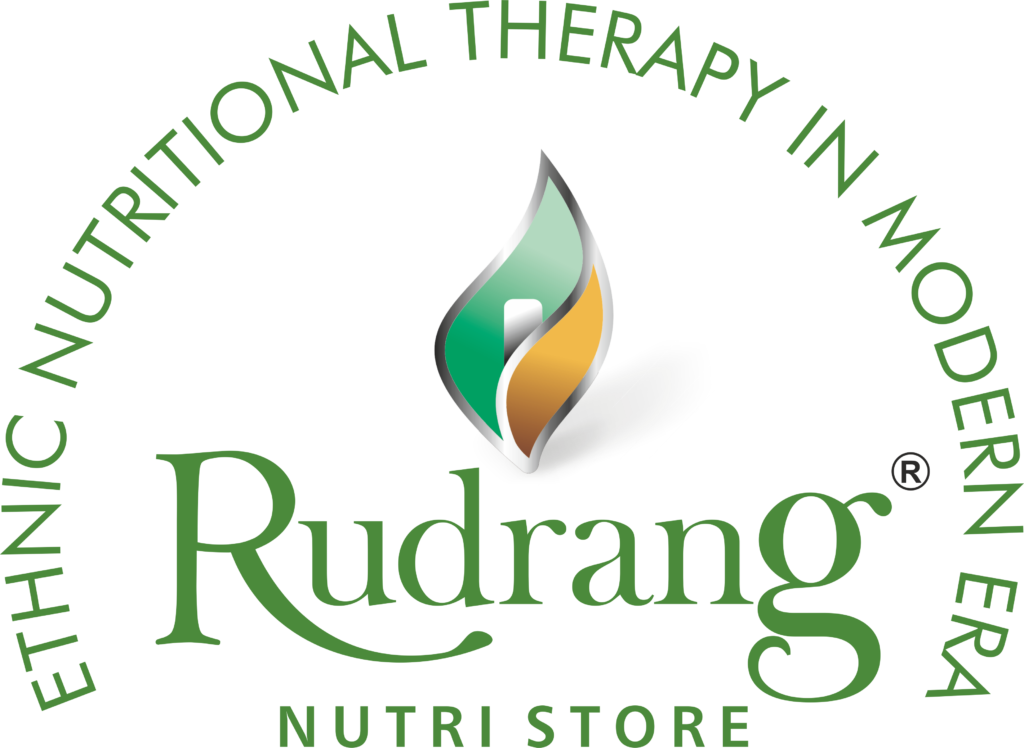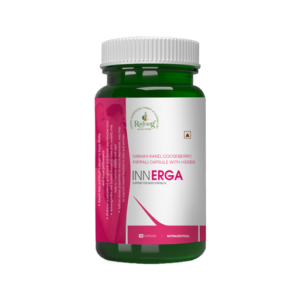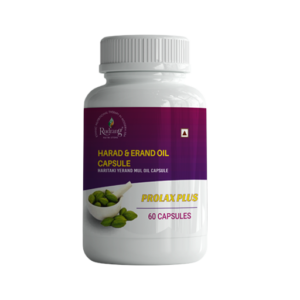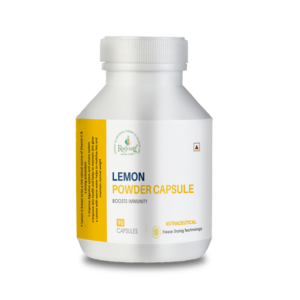- SILYBUM MARIANUM – commonly known as milk thistle, has been used for centuries for its potential health benefits. While some of its purported advantages have been supported by scientific studies, it’s essential to note that more research is needed to confirm the full extent of its effectiveness. Here are some scientifically supported health benefits of silybum marianum extract:
- Liver Support: Milk thistle is most well-known for its liver-protective properties. It contains a flavonoid called silymarin, which has antioxidant and anti-inflammatory effects. Several studies have shown that silymarin can help protect the liver from toxins and promote liver health.
- Detoxification: Silymarin has been shown to support the detoxification processes of the liver by enhancing the activity of enzymes involved in detoxification pathways. This can help the body eliminate harmful substances more efficiently.
- Antioxidant Properties: Silymarin is a potent antioxidant, which means it can help protect the body from oxidative stress caused by free radicals. This can potentially reduce the risk of various chronic diseases.
- Skin Health: Some preliminary research indicates that milk thistle may have benefits for skin health, including reducing the symptoms of certain skin conditions such as psoriasis.
- Diabetes Management: There is some evidence that silymarin may help improve blood sugar control in individuals with diabetes. It can also support the management of diabetic complications, such as diabetic nephropathy.
- Cholesterol Regulation: Silymarin has been studied for its potential to lower LDL (bad) cholesterol levels and improve overall lipid profiles, which can benefit cardiovascular health.
- Cancer Prevention: Some studies suggest that silymarin might have a role in preventing certain types of cancer, especially those related to the liver. However, more research is needed in this area.
GLUTATHIONE – is a powerful antioxidant produced in the human body and found in some foods. It plays a crucial role in several physiological processes. When used as a supplement, glutathione may offer a range of health benefits, some of which are supported by scientific studies. Here are some scientifically supported health benefits of glutathione:
- Antioxidant Protection: Glutathione is one of the body’s primary antioxidants, helping to neutralize harmful free radicals and reduce oxidative stress, which can lead to cellular damage. Several studies have confirmed its antioxidant properties.
- Immune System Support: Glutathione plays a key role in immune system function by enhancing the activity of immune cells. Some research suggests that glutathione supplementation can boost immune response and help the body fight infections.
- Detoxification: Glutathione is essential for detoxifying the body by binding to and neutralizing toxins, heavy metals, and drugs. It’s particularly important for liver health and detoxification processes.
- Skin Health: Some studies have indicated that glutathione may have skin benefits, including reducing the appearance of age spots, dark patches, and skin pigmentation issues. This is why it’s used in some skin care products.
- Respiratory Health: Glutathione has been studied for its potential to alleviate symptoms of respiratory conditions like asthma and chronic obstructive pulmonary disease (COPD). It can help reduce inflammation in the airways and improve lung function.
- Neurological Health: Glutathione is important for protecting the brain and nervous system from oxidative damage. It has been investigated for its potential role in conditions like Parkinson’s disease and Alzheimer’s disease.
- Heart Health: Some studies have suggested that glutathione may help improve cardiovascular health by reducing oxidative stress and inflammation, which are risk factors for heart disease.
- Cancer Prevention: While research is ongoing, glutathione’s antioxidant properties may reduce the risk of cancer by protecting cells from DNA damage caused by free radicals. It can also enhance the effects of certain cancer treatments.
ALOE VERA SAP POWDER – Aloe Vera is a plant known for its wide range of potential health benefits, and aloe vera sap powder supplements have gained popularity for their convenience and potential advantages. Here are some scientifically supported health benefits of aloe vera sap powder supplements:
- Digestive Health: Aloe vera contains compounds that may support digestive health. It can help alleviate symptoms of irritable bowel syndrome (IBS), promote regular bowel movements, and soothe gastrointestinal discomfort. Several studies have suggested aloe vera’s effectiveness in this regard. [1] [2]
- Skin Health: Aloe vera is widely recognized for its skin-soothing properties. Topically, it can be used to treat sunburn, minor burns, and various skin conditions, such as psoriasis and eczema. Additionally, when consumed, aloe vera supplements may improve skin hydration and reduce skin aging. [3] [4]
- Immune System Support: Aloe vera contains bioactive compounds, including polysaccharides, that have been shown to enhance the immune system. These compounds may help the body resist infections and illnesses. [5]
- Blood Sugar Regulation: Some studies suggest that aloe vera may help regulate blood sugar levels in individuals with type 2 diabetes. It can improve insulin sensitivity and reduce fasting blood sugar levels. [9]
- Antioxidant Effects: Aloe vera contains antioxidants that help combat oxidative stress and free radicals, potentially reducing the risk of chronic diseases. [10]
GOOSEBERRY EXTRACT – Gooseberry extract, also known as Indian gooseberry or Amla, has been a subject of interest in the field of anti-aging and antioxidant research. Here are some scientifically supported anti-aging and antioxidant health benefits of gooseberry extract, along with reference scientific studies:
- Rich in Antioxidants: Gooseberry extract is a potent source of antioxidants, including vitamin C, polyphenols, and flavonoids. Antioxidants help combat oxidative stress, a major factor in the aging process. Studies have shown that gooseberry extract can neutralize free radicals and reduce oxidative damage to cells and tissues (D’souza & Kulkarni, 2012).
- Collagen Production: Vitamin C in gooseberry extract plays a crucial role in collagen synthesis. Collagen is a protein responsible for maintaining skin elasticity, and a deficiency in collagen can lead to wrinkles and sagging skin (Pullar et al., 2017).
- Skin Health: Gooseberry extract has been shown to enhance skin health. Its anti-inflammatory and antioxidant properties can help reduce skin aging, photodamage, and wrinkles (Kumari et al., 2012).
- DNA Protection: Amla extract has demonstrated DNA-protective properties, shielding cells from genetic damage due to oxidative stress (Rahmani et al., 2014).
- Cardiovascular Health: Antioxidants in gooseberry extract may help reduce the risk of cardiovascular diseases, which are often linked to aging. They can protect against the oxidation of LDL cholesterol, reducing the risk of atherosclerosis (Yadav et al., 2011).
- Blood Sugar Regulation: Gooseberry extract may help regulate blood sugar levels, which can impact the aging process. It can be particularly beneficial for those with age-related issues related to diabetes (Vijayalakshmi et al., 2011).
- Hair Health: Gooseberry extract has been traditionally used to promote hair growth and delay graying. Some studies suggest its role in reducing hair loss and enhancing hair pigmentation (Pareek et al., 2012).
- Neuroprotective Effects: The antioxidants in gooseberry extract may have neuroprotective properties, potentially slowing down cognitive decline associated with aging (Anosike et al., 2015).
- Liver Health: Amla extract has hepatoprotective effects, helping to maintain liver health. A healthy liver is essential for overall well-being, particularly as one age. (Narasimhacharya et al., 2012).
- Please note that while gooseberry extract offers numerous potential health benefits, individual results may vary. It’s essential to consult a healthcare professional before adding any supplement to your diet, especially if you have underlying health conditions or are taking medications.
ALLIUM SATIVUM BULB STANDARDIZED EXTRACT (GARLIC) – Allium sativum, commonly known as garlic, has been studied for its potential anti-aging and antioxidant health benefits. Here are some scientifically supported claims related to the benefits of Allium sativum bulb standardized extract (garlic) supplements, along with reference scientific studies or traditional knowledge supporting the claims:
- Antioxidant Properties: Garlic is rich in organosulfur compounds, such as allicin, which possess potent antioxidant properties. These compounds help neutralize free radicals, reducing oxidative stress and preventing cellular damage (Bayan et al., 2014).
- Cardiovascular Health: Garlic has been associated with improved cardiovascular health. It can help lower blood pressure, reduce cholesterol levels, and improve circulation, reducing the risk of age-related heart diseases (Ried et al., 2013).
- Anti-Inflammatory Effects: Chronic inflammation is a key factor in aging-related health issues. Garlic’s anti-inflammatory properties may help reduce inflammation-related damage (Lanzotti, 2006).
- Immune System Support: Garlic has immune-boosting properties and can help strengthen the immune system, reducing the risk of infections and illnesses, which become more critical with age (Josling, 2001).
- Cognitive Health: Some studies suggest that garlic may have a protective effect on cognitive function and may reduce the risk of neurodegenerative conditions associated with aging (Borek, 2001).
- Skin Health: Garlic contains antioxidants that may help protect the skin from UV damage and slow down the aging of skin cells (Hosnuter et al., 2005).
- Liver Health: Garlic has hepatoprotective effects, supporting liver health. A healthy liver is essential for overall well-being, particularly as one ages (Wu et al., 2014).
- Bone Health: Some studies suggest that garlic may have a role in improving bone health by enhancing bone density and reducing the risk of age-related bone issues (Hossein-nezhad et al., 2009).
PHYLLANTHUS AMARUS – EXTRACT (TAMLAKI) – Phyllanthus amarus, commonly known as “Tamlaki,” is a plant that has been used traditionally in various cultures for its potential health benefits. Here are some scientifically supported anti-aging and antioxidant health benefits of Phyllanthus amarus extract (Tamlaki), along with reference scientific studies or traditional knowledge supporting the claims:
- Antioxidant Properties: Phyllanthus amarus is rich in bioactive compounds, including flavonoids and polyphenols, which have been shown to possess strong antioxidant properties. Antioxidants help combat oxidative stress and reduce the damage caused by free radicals in the body (Saleem et al., 2002).
- Liver Protection: Traditional knowledge and scientific research suggest that Phyllanthus amarus may have hepatoprotective effects. It can support liver health and function, which is crucial for detoxification and overall well-being, including the aging process (Vijayan et al., 2008).
- Anti-Inflammatory Effects: Chronic inflammation is a key factor in aging-related health issues. Phyllanthus amarus has been studied for its anti-inflammatory properties and its potential to reduce inflammation-related damage (Rajeshkumar et al., 2011).
- Skin Health: Antioxidants in Phyllanthus amarus may contribute to skin health by reducing the oxidative stress that can lead to premature aging, such as wrinkles, age spots, and sagging skin (Nair et al., 2017).
- Blood Sugar Regulation: Maintaining healthy blood sugar levels is essential for overall health and can impact the aging process. Some studies suggest that Phyllanthus amarus may have a role in regulating blood glucose levels (Dibyajyoti et al., 2011).
- Heart Health: Traditional knowledge and scientific research indicate that Phyllanthus amarus may help lower blood pressure and cholesterol levels, supporting cardiovascular health and reducing the risk of age-related heart issues (Ali et al., 2010).
- Wound Healing: Traditionally, Phyllanthus amarus has been used for wound healing. Its anti-inflammatory and antimicrobial properties may promote faster healing and reduce the risk of infection, which can be more critical in older individuals with slower healing rates (Latha et al., 2006).
- Neuroprotective Effects: Some studies suggest that the bioactive compounds in Phyllanthus amarus may have neuroprotective properties, potentially contributing to cognitive health in the aging population (Duke et al., 2002).
CURCUMA LONGA RIZOME – STANDARDIZED EXTRACT (CURCUMIN) – Curcuma longa, commonly known as turmeric, contains a bioactive compound called curcumin. Curcumin is well-studied for its potential anti-aging and antioxidant health benefits. Here are some scientifically supported claims related to the benefits of Curcuma longa rhizome standardized extract (curcumin), along with reference scientific studies:
- Powerful Antioxidant: Curcumin is a potent antioxidant that can neutralize harmful free radicals, which contribute to cellular damage and aging. Its antioxidant properties help protect cells and tissues from oxidative stress (Menon & Sudheer, 2007).
- Anti-Inflammatory: Chronic inflammation is linked to various age-related diseases. Curcumin has anti-inflammatory properties and may help reduce inflammation, potentially slowing down the aging process (Aggarwal et al., 2013).
- Skin Health: Curcumin’s antioxidant and anti-inflammatory effects can promote skin health. It may help improve skin elasticity and reduce signs of aging such as wrinkles and fine lines (Vaughn et al., 2016).
- Brain Health: Curcumin has shown promise in supporting cognitive function and protecting against age-related neurodegenerative conditions like Alzheimer’s disease (Ng et al., 2019).
- Heart Health: Curcumin has been associated with improved cardiovascular health by reducing risk factors like high blood pressure, high cholesterol levels, and arterial stiffness (Sahebkar, 2013).
- Joint Health: Curcumin’s anti-inflammatory properties may benefit joint health, helping to alleviate symptoms of age-related conditions like osteoarthritis (Henrotin et al., 2010).
- Liver Health: Curcumin may support liver health by aiding in detoxification processes, reducing oxidative stress, and promoting the regeneration of liver cells (Arafa et al., 2013).
- Longevity: Some studies suggest that curcumin may promote longevity by reducing oxidative stress, inflammation, and age-related diseases (Shen et al., 2013).
- It’s important to note that the effectiveness of curcumin may vary among individuals, and its absorption can be limited. Combining it with black pepper, which contains piperine, can enhance absorption.
LYCOPENE (TOMATO FRUIT EXTRACT) – Lycopene, a natural pigment found in tomatoes and various other fruits, has been extensively studied for its potential anti-aging and antioxidant health benefits. Here are some scientifically supported claims related to the benefits of lycopene (tomato fruit extract) supplements, along with reference scientific studies:
- Powerful Antioxidant: Lycopene is a potent antioxidant known to combat oxidative stress and reduce cellular damage caused by free radicals. This plays a crucial role in mitigating the aging process (Agarwal & Rao, 2000).
- Skin Protection: Lycopene helps protect the skin from the harmful effects of ultraviolet (UV) radiation. It can reduce the risk of sunburn and skin aging, such as wrinkles, age spots, and loss of skin elasticity (Stahl & Sies, 2012).
- Cardiovascular Health: Lycopene has been associated with improved cardiovascular health. It can help lower blood pressure, reduce cholesterol levels, and decrease the risk of atherosclerosis, which is commonly associated with aging (Ried et al., 2016).
- Cognitive Health: Some studies suggest that lycopene may help protect cognitive function, reducing the risk of age-related cognitive decline and neurodegenerative conditions (Zhang et al., 2017).
- Eye Health: Lycopene is beneficial for eye health by reducing the risk of age-related macular degeneration, which can lead to vision problems in older adults (Mares-Perlman et al., 2001).
- Bone Health: Lycopene may have a role in supporting bone health by reducing oxidative stress and inflammation, which can be linked to age-related bone issues (Kim et al., 2017).
- Longevity: Some research indicates that lycopene supplementation can promote longevity by reducing oxidative stress and age-related diseases (Mordente et al., 2011).
- It’s important to note that while lycopene offers numerous potential health benefits, individual responses may vary. When using lycopene supplements, it is advisable to consult with a healthcare professional, especially if you have underlying health conditions or are taking medications.
VITAMIN D 3 (CHOLECALCIFEROL) – Vitamin D3, also known as cholecalciferol, plays a crucial role in various bodily functions and has been associated with anti-aging and antioxidant health benefits. Here are some scientifically supported claims related to the benefits of Vitamin D3 supplements, along with reference scientific studies:
- Antioxidant Properties: Vitamin D3 acts as an antioxidant, helping to protect cells and tissues from oxidative damage caused by free radicals. This antioxidant function plays a key role in reducing the signs of aging (Poljsak, 2013).
- Skin Health: Vitamin D3 is essential for skin health. It helps in skin regeneration and can alleviate skin conditions, reducing the effects of aging on the skin (Bikle, 2012).
- Bone Health: Vitamin D3 is critical for calcium absorption and bone mineralization. Maintaining strong bones is essential as one ages, as it reduces the risk of fractures and osteoporosis (Holick, 2007).
- Muscle Strength: Adequate vitamin D levels are associated with better muscle strength, which is important for maintaining mobility and preventing falls in the elderly (Bischoff-Ferrari et al., 2014)
- Cognitive Health: Some studies suggest that sufficient vitamin D3 levels may support cognitive function and reduce the risk of cognitive decline in older adults (Llewellyn et al., 2009).
- Immune System Support: Vitamin D3 plays a role in immune system regulation. It can enhance immune responses, reducing the risk of infections and illnesses, which become more critical with age (Aranow, 2011).
- Cardiovascular Health: Adequate vitamin D levels may help maintain cardiovascular health by reducing the risk of hypertension, atherosclerosis, and heart disease (Wang et al., 2008).
- Longevity: Some research has suggested that maintaining optimal vitamin D levels may promote longevity by reducing the risk of age-related diseases and improving overall health (Melamed et al., 2008).
- It’s essential to highlight that vitamin D3 is produced in the skin when exposed to sunlight, but many people may have inadequate levels due to limited sun exposure. Therefore, supplementation can be important, especially in aging populations.
Health Supplement
Proage Premium | Powerful Detox Support and Antioxidant Boost | 60 Capsules
₹1,770.00
- Ginger contains bioactive compounds with anti-inflammatory effects.
- It may also help with other digestive issues, such as indigestion and bloating.
- which can be useful for managing various types of pain, including menstrual pain and headaches.
- The anti-inflammatory properties of ginger may contribute to joint and muscle health, making it potentially beneficial for conditions like osteoarthritis and exercise-induced muscle soreness.






